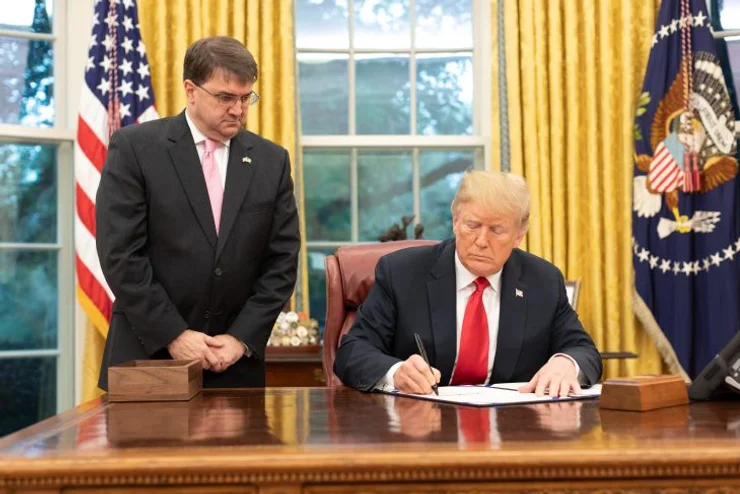MISSION ACT QUALITY OF CARE MUST BE A TOP PRIORITY
By Suzanne Gordon & Russell Lemle, PhD
VHPI Senior Policy Analysts
On December 19 the House Committee on Veterans Affairs will have a crucial opportunity to reaffirm the intent of the VA MISSION Act: veterans’ healthcare should not only be easy to access but of the highest caliber wherever it is delivered.
The Choice Program outsourced more veterans’ care to private providers but never monitored the quality of those services. In response, the MISSION Act directed the VA to set rigorous quality standards for the Veterans Community Care Program (VCCP) on par with the Veterans Health Administration (VHA). Unfortunately, these fixes may only make the problem worse.
To ensure VCCP doctors and hospitals provide care that is equal to or better than the VHA, they must be required to adhere to evidence-based guidelines for outpatient and inpatient services, evaluate patients’ improvement, and report the results publicly.
Private providers are pushing back against these fundamental benchmarks. Joanne Frederick, VP of WellPoint Military Care, a division of Anthem, stated that use of their network to increase access would come with an expected ‘tradeoff’ in quality.
At the VA’s Health Care Standards for Quality meeting in late September, Frederick declared that if the VHA introduces extra quality criteria, “the people that don’t want to meet those standards won’t deliver the service.”
Kylanne Green, CEO of URAC, also anticipated that any new VA reporting requirements “may result in providers declining to participate in the Community Care Network.” She recommended the VHA go easy on private providers and allow invoice claims to count as substitutes for performance data.
The National Quality Forum’s Measure Applications Partnership cautioned against federal programs taking shortcuts, noting “There may be negative unintended consequences if low burden measures are prioritized over meaningful measures with a higher burden.”
Given the looming deadline, the VHA may be tempted to ignore this warning and yield to Anthem’s pressure to lower the bar for private providers. That would perpetuate the Choice Program’s quality control problems. Without comprehensive information on private sector care, veterans will be blindly sent to private sector doctors and hospitals without knowing whether the quality of care they deliver is inferior to the VHA.
Two other challenges must be addressed. First, contrasting healthcare outcomes of veterans to civilians is like comparing apples to oranges. Private sector quality scores, when reported, are based on non-veteran patients who are, on average, younger, wealthier and have far fewer medical and mental health conditions. Veterans with more complex and severe diseases will inevitably have worse outcomes. Unless the VHA requires private providers to specifically track veterans who are receiving services through the VCCP, comparisons of quality care will be inaccurate.
Second, many patient conditions, whether treated inside or outside the VHA, have no quality metrics published for public use. A prime example is PTSD. You won’t find information on whether evidence-based PTSD treatments are employed on the VA or Medicare websites that compare care across settings. You won’t see whether symptoms are assessed. In fact, PTSD isn’t even listed. Without available scores for specific conditions, how can veterans make decisions about the quality of services provided by the VCCP versus those delivered by the VHA?
Administrators also depend on reliable measures to guide their healthcare decisions. The MISSION Act instructs managers to utilize quality data to designate underperforming VHA clinics and then dispense private care vouchers to thousands of their patients. If the comparative performance data aren’t valid then the distribution of vouchers won’t be either.
Flawed data endangers the entire VHA system. Because payment for private sector providers comes directly from the budget for existing VHA facilities, services will steadily erode, staffing will be cut and veterans will be unable to get care at the VHA. Most veterans insist they want the VHA to be strengthened but that’s not what will happen if more veterans are channeled to private sector providers whose quality has not been proven. As one VHA hospital official told us, “This will be ‘kaboom’ for the VHA.”
Congress must ensure the systems used to judge quality of care are accurate, meaningful, transparent, and accountable. VCCP must be required to track data on veterans and be held to the identical VHA standards. Objective and subjective symptom improvement measures should be instituted for all health conditions common to veterans. Posted data should be categorized by diagnosis so veterans can readily search for information that matters to them. Veterans should never be referred to VCCP if the provider cannot demonstrate its care is better than the VHA. Our nation’s veterans deserve no less.


